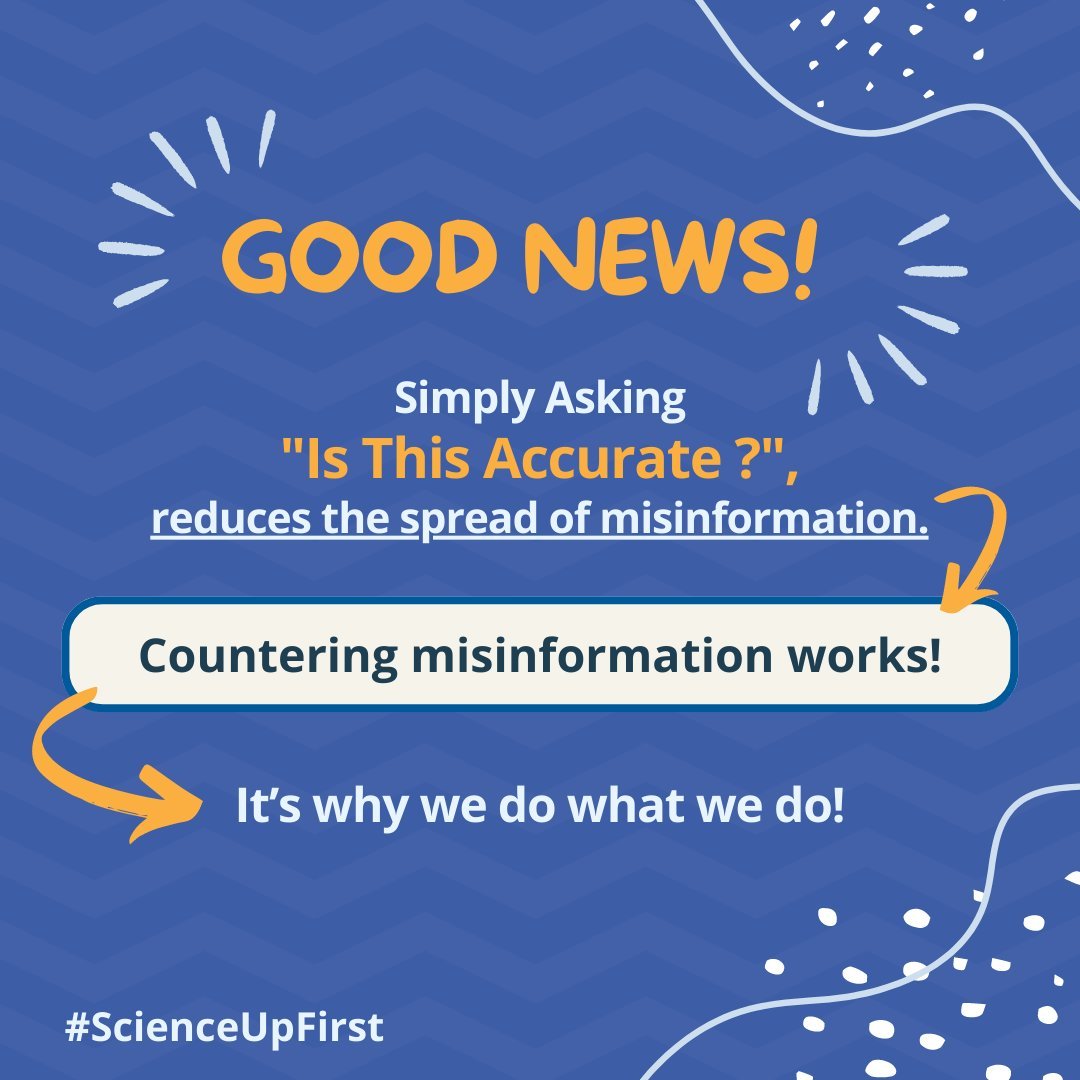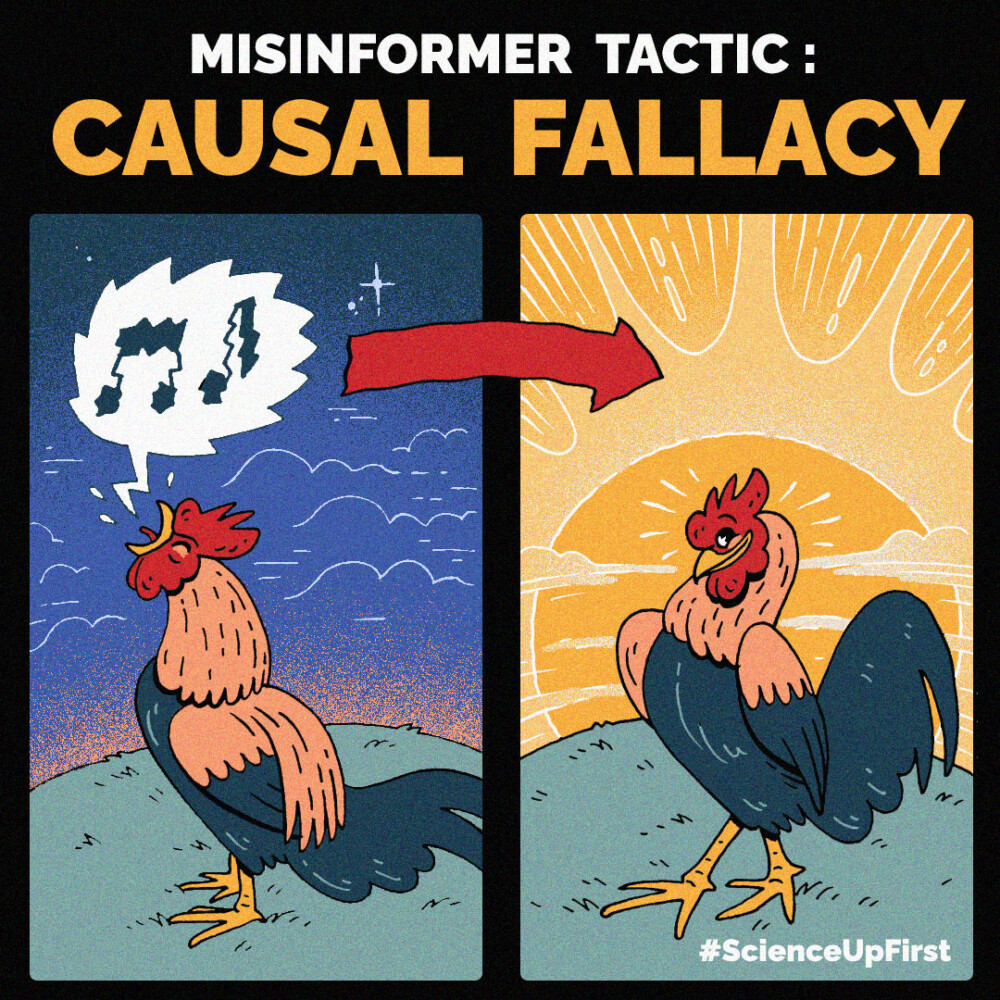
Raise your hand if you are in need of some good news. ️
A recent study that spanned 16 countries and 6 continents investigated how effective different interventions were in fighting the spread of misinformation (1). The study found that:
- Prompting people to consider accuracy reduced their likelihood of sharing misinformation on social media platforms.
- Additionally, the study found that simple tips on how to spot misinformation can curb its spread (2).
This study is part of a growing body of evidence that points to the impact of misinformation interventions (3,4,5).
How can you help? The next time you come across a headline that is emotionally charged, lacks nuance, or sounds too good to be true, ask yourself, “Is this accurate?”. Does something still seem fishy? Consider the following:
- Investigate the source. ️
Is the story written by a source whose reputation you trust? If the story comes from an unfamiliar organization, check their “About Us” section to learn more. - Inspect the dates.
False news stories may link to out-of-date references or timelines that don’t make sense. - Look at other sources.
Are other stories independently verifying the same report or are they all linking back to a singular article? - Is it a joke?
The best of us have fallen for a well-placed April Fools’ joke. Double check what you are reading isn’t a parody. - Still have doubts? If you’re not 100% sure it’s legit, don’t share it. ♀️
If you’re here thank you for being part of this initiative – we are stronger when we are together against misinformation.
Share our original Tweet!
Good news! Interventions to fight misinformation work!
Something as simple as prompting people to consider accuracy and providing tips to spot misinformation helps curb its spread.#ScienceUpFirst
[1/2] pic.twitter.com/eK3c96NftU
— ScienceUpFirst | LaScienced’Abord (@ScienceUpFirst) August 14, 2023
View our original Instagram Post!
View this post on Instagram
- Understanding and combatting misinformation across 16 countries on six continents
- A digital media literacy intervention increases discernment between mainstream and false news in the United States and India
- Citizens Versus the Internet: Confronting Digital Challenges With Cognitive Tools
- Evaluating the Impact of Attempts to Correct Health Misinformation on Social Media: A Meta-Analysis
- Does Debunking Work? Correcting COVID-19 Misinformation on Social Media




